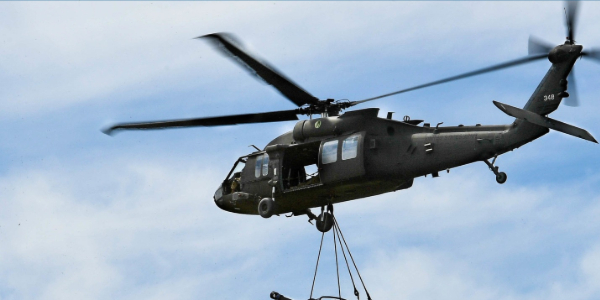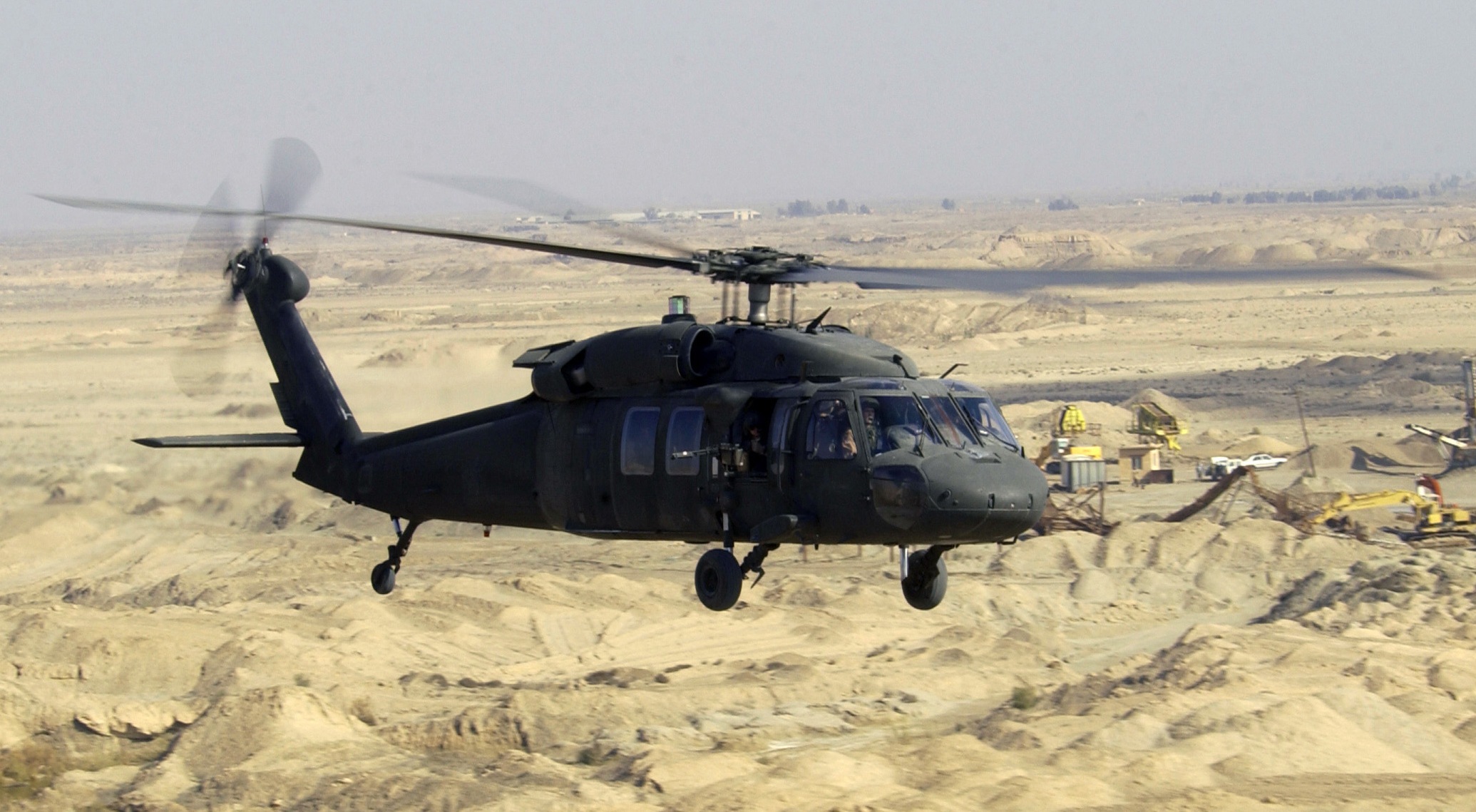UH 60 Helicopter: Advanced Avionics and Fight Equipments
UH 60 Helicopter: Advanced Avionics and Fight Equipments
Blog Article
The Influence of Lasting Practices on the Future of Airplane Procedures and Emissions Reduction
As the aviation sector deals with enhancing examination over its environmental impact, the adoption of sustainable practices emerges as a critical path towards future airplane procedures and exhausts reduction. Technologies in lasting aeronautics gas and improvements in crossbreed propulsion innovations stand at the forefront of this change, encouraging substantial decreases in greenhouse gas emissions.

Summary of Sustainable Practices
Sustainable techniques in airplane operations incorporate a series of approaches aimed at minimizing environmental influence while preserving operational efficiency. These techniques are vital in the air travel market's commitment to minimizing its carbon impact and sticking to worldwide environmental requirements. Secret efforts include optimizing flight courses to decrease fuel intake, boosting maintenance methods to ensure aircraft run at peak effectiveness, and applying sophisticated modern technologies such as winglets and lightweight products that improve aerodynamics.

Involving and educating personnel on sustainability practices likewise play an essential duty, fostering a culture of ecological duty within companies. Overall, the integration of these sustainable practices not just helps in reducing exhausts yet also improves the long-lasting stability of the aeronautics field, guaranteeing it fulfills the demands of both clients and governing bodies while adding to international sustainability goals.
Innovative Gas Alternatives
Numerous innovative gas alternatives are becoming essential solutions to minimize the aviation industry's reliance on typical nonrenewable fuel sources. Amongst these alternatives, Lasting Aviation Fuels (SAFs) have gotten substantial interest due to their possible to reduce lifecycle greenhouse gas exhausts by as much as 80% contrasted to standard jet fuels. SAFs are stemmed from different feedstocks, including waste oils, farming residues, and also algae, making them a functional choice for the sector.
Another promising option is hydrogen fuel, which, when utilized in fuel cells, creates just water vapor as a by-product. Additionally, electrical propulsion systems are being explored, leveraging battery modern technology to power aircraft.
Last but not least, biofuels stemmed from biomass are being checked out, supplying a sustainable choice that can be blended with traditional gas. Jointly, these ingenious gas choices represent a critical action towards achieving a sustainable aviation environment, aligning with international emissions reduction targets and improving the sector's environmental stewardship.
Technical Developments in Aviation

How can technical innovations improve the future of air travel? Developments such as electric and hybrid propulsion systems are at the center, promising significant reductions in fuel consumption and greenhouse gas emissions.
In addition, the application of sophisticated materials, such as lightweight compounds, adds to enhanced aerodynamics and fuel performance. Making use of synthetic knowledge and artificial intelligence in flight procedures maximizes path planning and decreases gas melt by allowing real-time changes based on weather condition and website traffic conditions. Furthermore, the development of autonomous and remotely piloted aircraft systems stands to transform freight and traveler transportation, possibly raising effectiveness while decreasing human mistake.
Additionally, lasting air travel technologies, including sophisticated air website traffic management systems, can simplify operations and reduce congestion, bring about reduced emissions throughout flight. These developments jointly represent a standard change in aviation, promising a future where sustainability and functional effectiveness are linked, thus sustaining the market's commitment to decreasing its ecological impact.

Regulative Structure and Compliance
Due to the expanding emphasis on ecological stewardship within the aviation field, the governing structure controling airplane procedures is progressing to advertise lasting practices. Regulatory bodies, such as the International Civil Aviation Company (ICAO) and different nationwide aeronautics authorities, are presenting rigorous guidelines intended at lowering emissions and enhancing operational performance.
These policies frequently consist of the fostering of Lasting Aviation Fuel (SAF), which has been recognized as a key part in attaining reduced carbon footprints. Compliance with these laws calls for airline companies to execute advanced innovations and functional more helpful hints techniques, such as optimized trip courses and boosted air web traffic administration, to reduce fuel usage.
Furthermore, the enforcement of emissions trading systems and carbon offsetting campaigns is coming to be increasingly prevalent, compelling airline companies to monitor and report their emissions accurately. Non-compliance can result in considerable fines, hence pushing operators to prioritize sustainability in their service models.
Eventually, the evolving governing landscape not just drives technology and financial investment in eco-friendly modern technologies but additionally fosters a society of Look At This accountability within the aeronautics sector. As these frameworks remain to create, the focus on sustainable practices will certainly be important to accomplishing the industry's lasting environmental goals.
Future Fads in Airplane Procedures
As the aviation industry adapts to a significantly rigorous governing atmosphere, future trends in aircraft procedures are established to focus on innovative options that further enhance sustainability and performance - uh 60. Trick growths will likely include the adoption of advanced air web traffic administration systems, which utilize real-time data and artificial knowledge to enhance trip courses, minimizing gas usage and emissions
An additional significant fad is the increased integration of sustainable aeronautics fuels (SAFs) These choices to conventional jet fuel, originated from renewable resources, can considerably lower lifecycle greenhouse look at here gas emissions. The sector's dedication to SAFs will likely increase as airlines work together with fuel manufacturers to ensure accessibility and cost-effectiveness.
Additionally, the push in the direction of electrification and hybrid propulsion systems is getting momentum. Arising aircraft designs will certainly integrate these modern technologies, supplying quieter and a lot more effective operations, specifically for short-haul flights.
Final Thought
The adoption of sustainable air travel fuels, coupled with developments in hybrid and electric propulsion systems, is essential for lessening lifecycle greenhouse gas exhausts. Enhancing flight courses and embracing ingenious innovations add to a quieter and more ecologically pleasant aeronautics field.
Innovations in lasting air travel gas and innovations in crossbreed propulsion technologies stand at the forefront of this improvement, promising considerable decreases in greenhouse gas exhausts.Countless ingenious gas options are arising as crucial options to decrease the aeronautics market's reliance on standard fossil gas - uh 60. Among these choices, Lasting Aeronautics Fuels (SAFs) have actually gotten significant focus due to their prospective to decrease lifecycle greenhouse gas discharges by up to 80% contrasted to conventional jet gas.One more substantial fad is the enhanced combination of sustainable air travel gas (SAFs) The adoption of sustainable aviation gas, coupled with advancements in electrical and hybrid propulsion systems, is essential for decreasing lifecycle greenhouse gas exhausts
Report this page